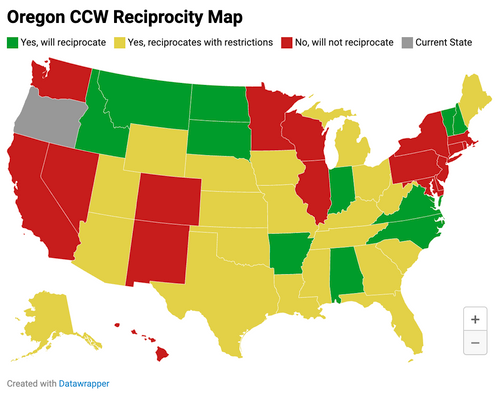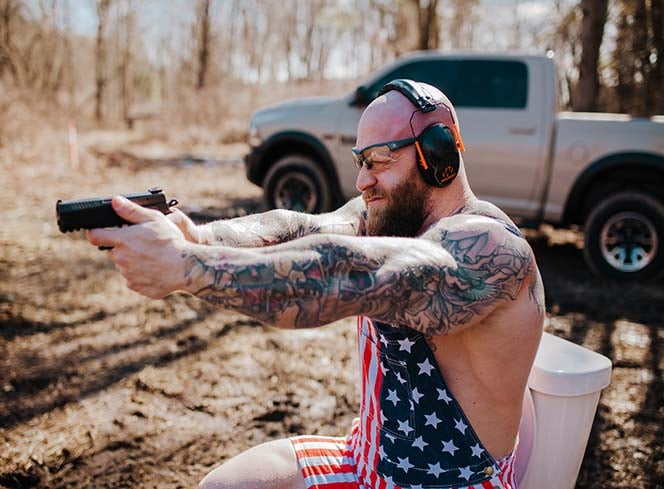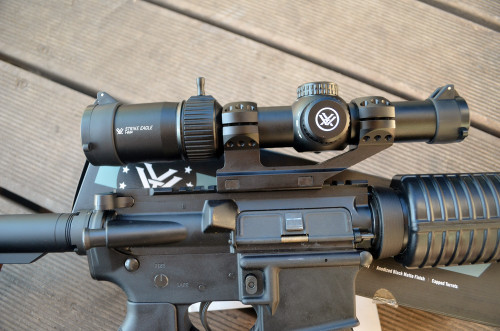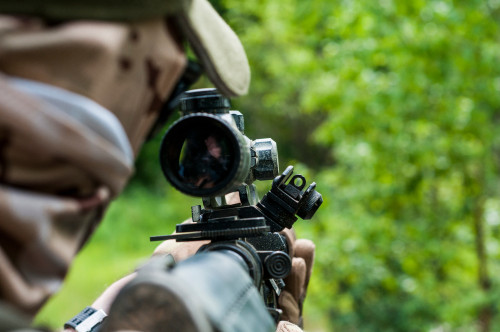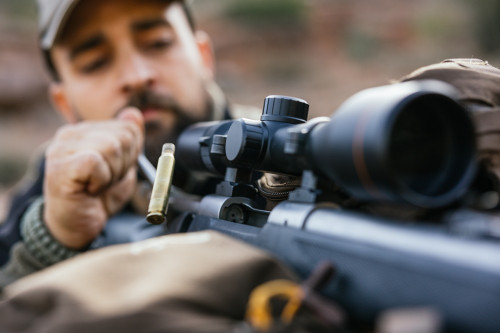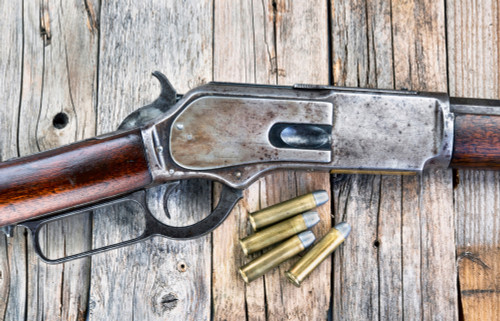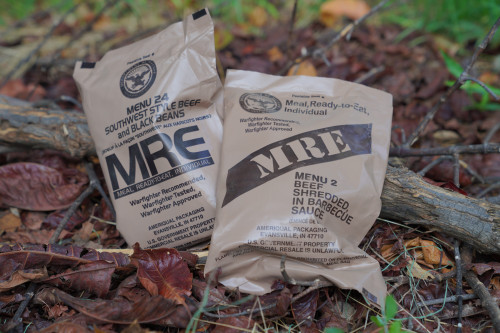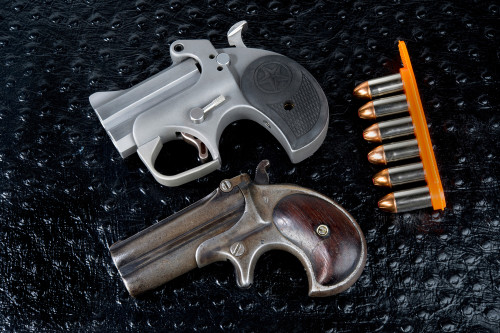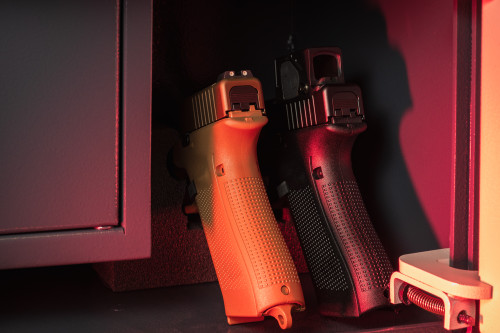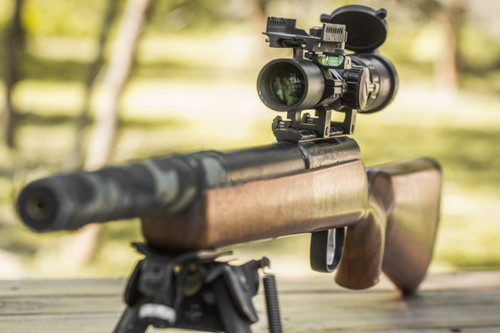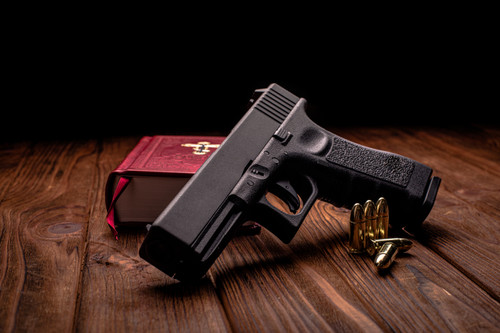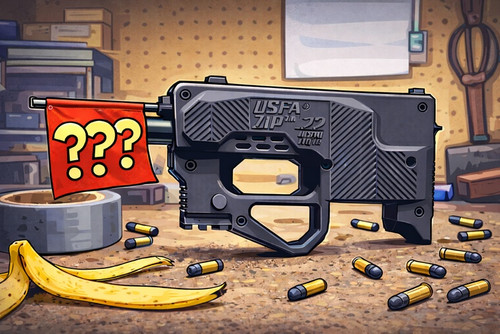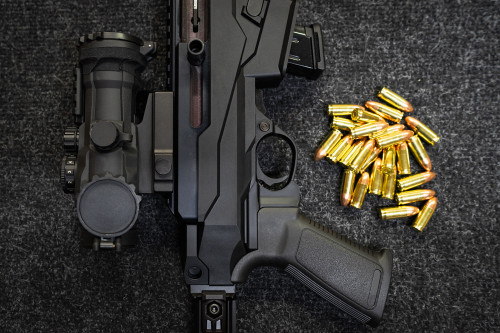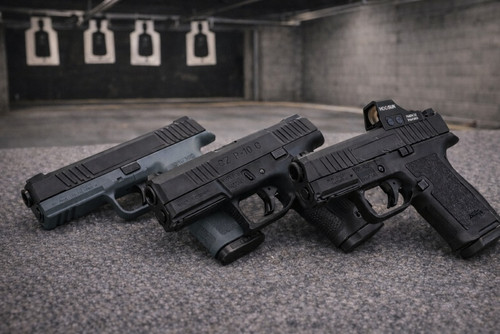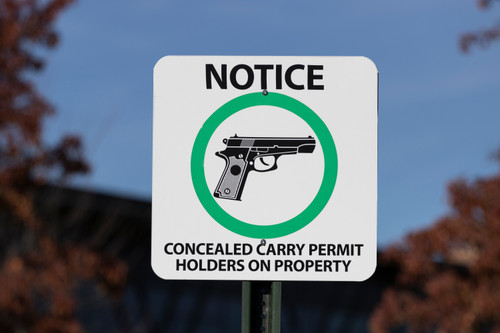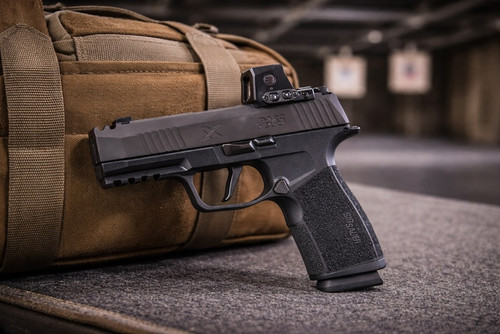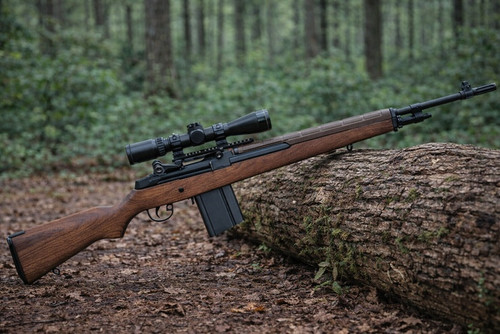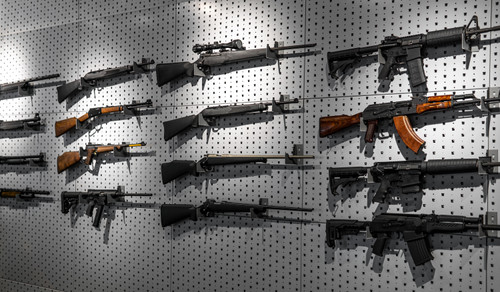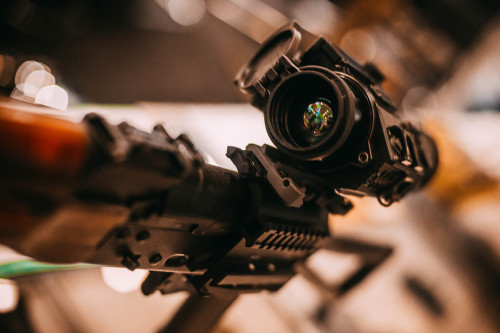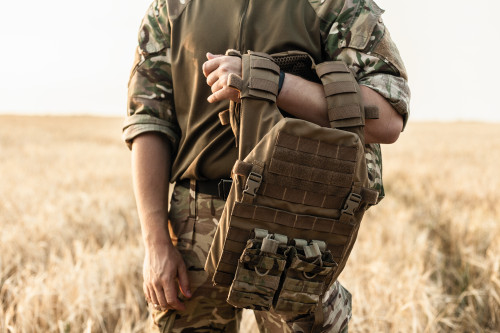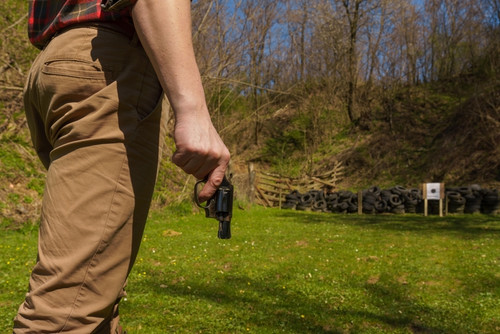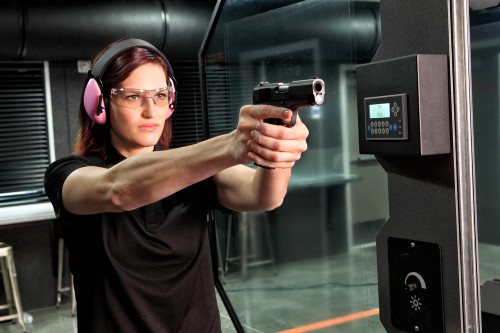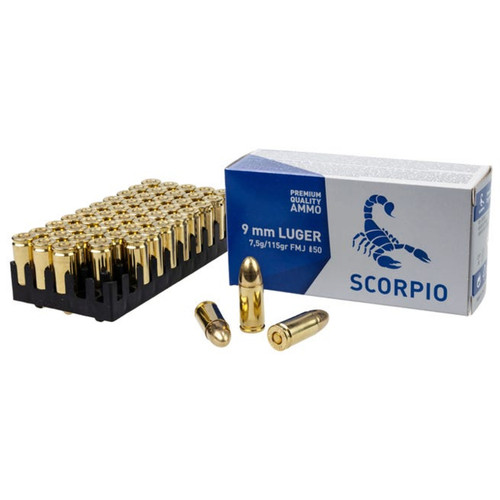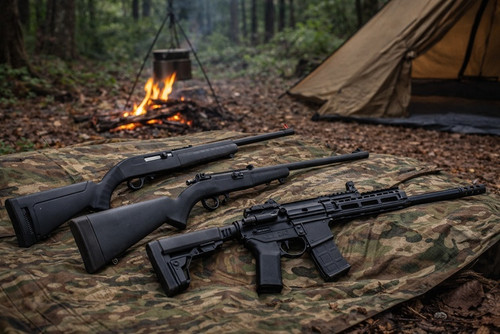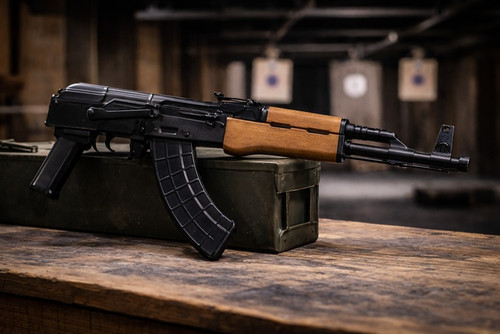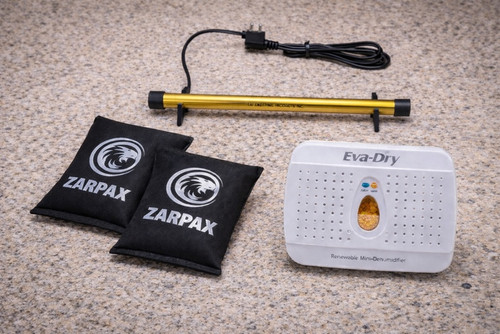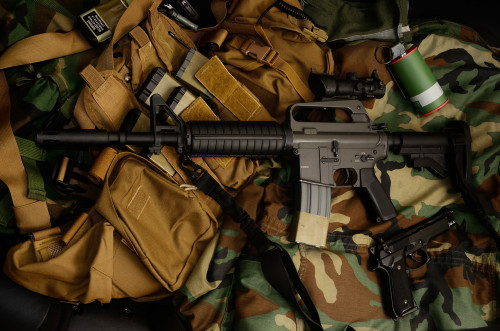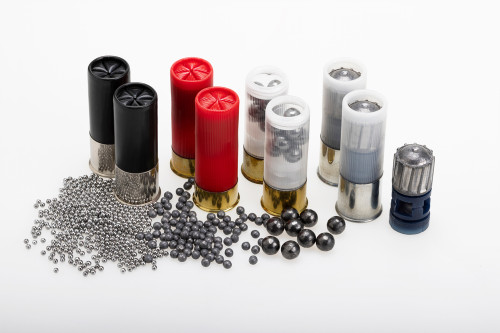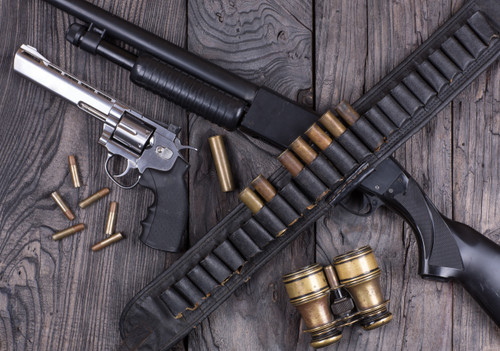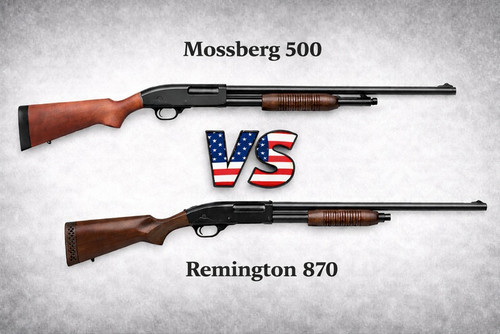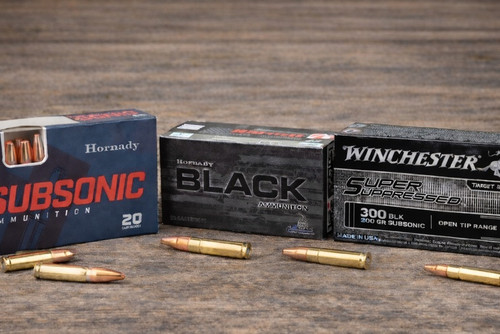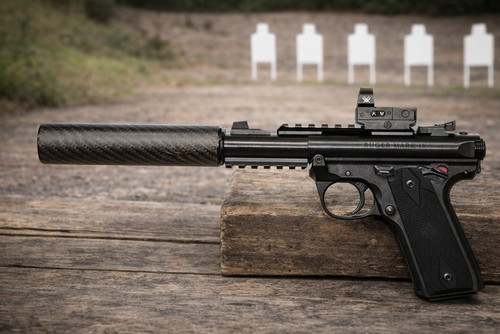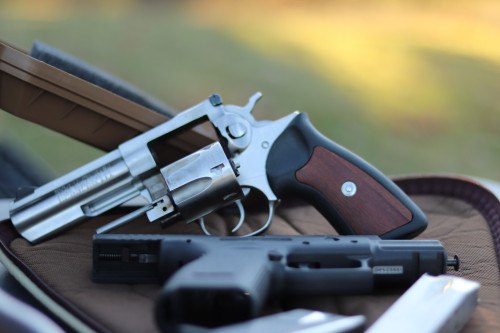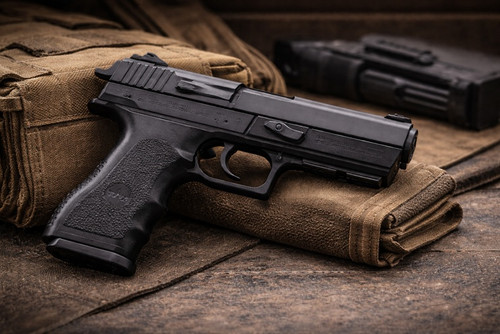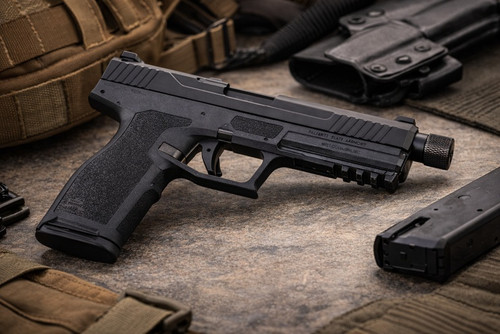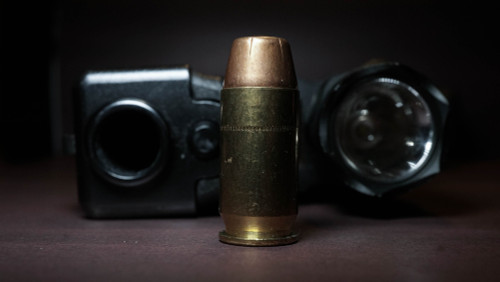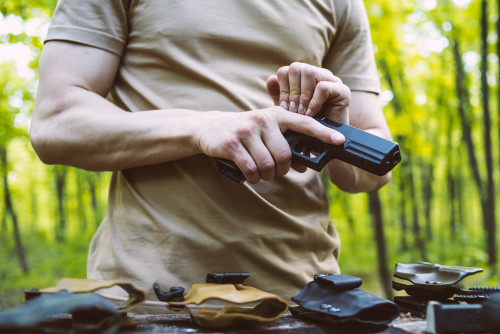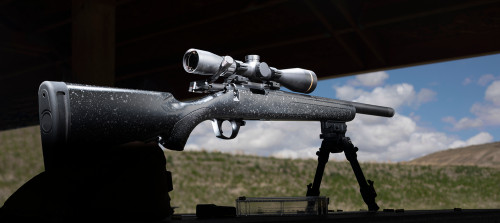Like many states in America, Oregon is a tense mix of anti-gun cities and pro-gun rural areas. However, despite the best efforts of the city-dwellers, the state remains friendly to law-abiding gun owners, concealed carriers, and self-defenders — for now.
In this guide, we’ll cover everything you need to know about concealed carry in Oregon including reciprocity with other states, how to get a license, and specific rules regarding the purchase, carry, and use of a firearm in the “Beaver State.”
Legal Disclaimer
This article doesn’t constitute legal advice. We’re communicating informally here to make this information easy to grasp and to avoid getting lost in legal jargon. With that said, it’s the legal jargon that may decide your fate in court. Be prepared.
We’ll be as accurate as we can, but for clarification, cross-check the information here with actual laws, which we’ve linked throughout the article. If you have additional questions or concerns, we recommend consulting with an attorney experienced in the self-defense laws of Oregon.
1. Quick Stats
- Number of other state permits honored in Oregon: 0
- Number of states that honor Oregon permits: 25
- Percentage of people licensed for concealed carry in Oregon: 7%
- Number of issued licenses in Oregon: 325,000
- Minimum age to carry a concealed firearm in Oregon: 21
- Oregon concealed carry license validity: 4 years
2. Oregon Concealed Carry Overview
This section provides an overview of concealed carry laws in Oregon.
Carry Type
Oregon is not a constitutional carry or permitless carry state. To legally carry a concealed firearm in the state, you must qualify for and obtain an Oregon Concealed Handgun License (CHL). Oregon does not recognize concealed carry permits from other states.
Open carry is legal in Oregon for anyone over 18 years old who can legally possess a gun.
OR Constitution Article I Section 27
Concealed Handgun License
Oregon is a shall-issue state, which means anyone who meets the qualifications can technically obtain a CHL. You don’t need to provide proof to the government that you have a particular need for a concealed firearm. CHLs are processed and issued by your county sheriff.
While Oregon sheriffs may issue CHLs to residents of bordering states, this rarely happens in practice. Residents of non-bordering states are prohibited from obtaining an Oregon CHL.
Only law enforcement has access to the concealed carry registry, and your CHL is linked to your driver’s license. Detailed information about obtaining a CHL can be found in section 7 of this article.
OR Revised Statute 166.291
Preemption
Oregon retains preemption rights over all firearm laws throughout the state. However, the state grants local governments the right to create additional, stricter regulations in some cases.
For example, local governments can regulate where firearms are discharged (e.g., shooting range locations) and where you can open carry loaded firearms in public places.
The state also grants educational institutions the right to establish campus firearm policies, including banning firearms entirely.
OR Revised Statute 166.173
Red Flag Law
Oregon has a red flag law, also called an extreme risk protection order (ERPO), which prevents the subject of the order from buying, carrying, possessing, or transporting deadly weapons. The purpose of the ERPO is to prevent imminent catastrophe (e.g., a school or workplace shooting).
ERPOs can be initiated by family members and law enforcement officers.
OR Revised Statute 166.527
Other Weapons
The Oregon CHL exclusively regulates the concealed carry of firearms and does not pertain to any other weapons. However, tasers, stun guns, and pepper spray can be bought and carried without the need for a license.
Magazine Limits
Oregon has no law restricting handgun magazine capacity.
However, a ballot measure passed in 2022 restricted high-capacity (more than 10 rounds) magazines, though the law has yet to go into effect. The measure continues to be a point of legal and political contention in the state.
OR Ballot Measure 114
Ammunition Restrictions
Buying or possessing armor-piercing (teflon-coated) pistol ammunition is illegal in Oregon. Other than that, there are no notable restrictions on buying ammunition in the state.
OR Revised Statute 166.350
3. Oregon Concealed Carry Reciprocity
Each state has different rules and licensing procedures for concealed carry. However, some states either fully or partially recognize the concealed carry permits of other states. Here’s how Oregon fits into the national concealed carry picture:
State Permits Honored by Oregon
Oregon does not honor permits from any other state. To legally carry a concealed handgun in Oregon, you must possess an Oregon CHL.
States Fully Honoring Oregon CHL
The states below fully honor the Oregon CHL, which means Oregon CHL holders can carry a concealed firearm in that state without seeking any additional approval. However, you are still subject to the gun laws of any state you visit.
- Alabama
- Arkansas
- Idaho
- Indiana
- Montana
- New Hampshire
- North Carolina
- North Dakota
- South Dakota
- Vermont
- Virginia
States Partially Honoring Oregon CHL
The states below honor the Oregon CHL, but with some restrictions that vary by state. Be sure to check the conditions of the state you’re traveling to.
- Alaska
- Arizona
- Florida
- Georgia
- Iowa
- Kansas
- Kentucky
- Maine
- Michigan
- Mississippi
- Missouri
- Nebraska
- Ohio
- Oklahoma
- South Carolina
- Tennessee
- Texas
- Utah
- West Virginia
- Wyoming
States Not Honoring Oregon CHL
These states do not honor the Oregon CHL:
- California
- Colorado
- Connecticut
- Delaware
- District of Columbia
- Hawaii
- Illinois
- Louisiana
- Maryland
- Massachusetts
- Minnesota
- Nevada
- New Jersey
- New Mexico
- New York
- Pennsylvania
- Puerto Rico
- Rhode Island
- Washington
- Wisconsin
4. Oregon Rules for Buying a Gun
Here is an overview of the rules related to buying a handgun in Oregon.
Purchase Permit
Purchase permits are not required to buy a handgun in Oregon.
However, the 2022 ballot measure mentioned above also instituted a purchase permit requirement, but again, has yet to become legally binding.
OR Ballot Measure 114
Background Checks
Criminal history records checks are required to buy a gun, including at gun shows and sales between private parties. The process is completed by the Federal Firearms Licensee (FFL) dealer facilitating the transaction, using the FBI’s National Instant Criminal Background Check System (NICS). There is a $10 fee.
All handgun sales must be facilitated by an FFL. Exceptions to this rule include transferring guns between family members.
OR Revised Statute 166.434 and 166.435
Waiting Period
Oregon does not mandate waiting periods for handgun purchases.
Registration
Oregon does not mandate handgun registration. However, all transaction data must be reported to the Oregon State Police and held for five years, effectively creating a temporary gun registry.
OR Revised Statute 166.412
Minimum Age for Purchase
You must be at least 21 years old to legally purchase a handgun from a registered dealer. As all legal transfers must be facilitated by an FFL, this effectively means the minimum purchase age is established by federal law.
US Code Title 18 Section 922
5. Oregon Rules for Carrying a Gun
This is an overview of rules and laws related to carrying a handgun in Oregon.
Basic Guidelines
Carrying a concealed handgun in Oregon requires an Oregon CHL. You must have your license and a photo ID on you at all times when carrying concealed. If you don’t have the card on you, this is considered evidence that you do not have a license.
No permit is required to carry a concealed firearm on your private property or at a business you own. Open carry of firearms is allowed for anyone who is at least 18 years of age and can otherwise legally possess a firearm.
In this context, to “carry” means having the gun “on or about your person,” which means carrying it in a holster or having it readily accessible in something like a briefcase or backpack. This also includes having the gun accessible in your vehicle. If the gun is unloaded and locked in the trunk, you’re not “carrying” it, you’re just “possessing” or “transporting” it.
OR Revised Statute 166.292 and 166.250
Prohibited Carry Locations
While the CHL broadly gives you the right to carry a concealed handgun, some specific locations are off-limits due to state law, local ordinance, or institutional regulations.
Here are a few key locations where concealed carry of a pistol is regulated or prohibited, even with a CHL:
- Schools and universities have the right to establish firearm regulations on campus — including banning carry completely — and must post signs to that effect
- The cities of Portland, Beaverton, Tigard, Oregon City, Salem, and Independence have outlawed open carry, though concealed carry is still allowed (with CHL)
- The state capitol
- Portland International Airport
- Court facilities
- Department of Corrections facilities
- Any private property as determined by the owner — no postings required
- National parks with signs indicating firearm prohibition
- Tribal property, including reservations and casinos
- Any place prohibited by federal law
OR Revised Statute 166.370, 169.076
OR Senate Bill 554
Duty To Inform Police
You do not have a duty to inform police you are carrying a concealed weapon on your person or in your vehicle. However, if you’re asked by police if you’re carrying a concealed firearm, you can refuse to answer, but you can’t legally lie.
Carrying in Vehicle
You need to have a CHL to legally carry a loaded firearm inside a vehicle. If you don’t have a CHL and need to transport a gun in your car, the gun must be unloaded, locked in a case, and kept in the trunk or otherwise inaccessible to the passenger compartment. A locked glove box is acceptably secure in this context.
OR Revised Statute 166.250
Carrying While Intoxicated
Oregon has no law addressing carrying while intoxicated.
However, carrying a gun while intoxicated is stupid. The purpose of a gun is to keep you and the people around you safe, which you can’t do if you’re high or drunk. If you want to get wasted in public, leave your gun at home and outsource your safety to more serious people.
Minimum Age To Carry
You must be at least 21 years old to obtain a CHL and carry a concealed handgun in Oregon. You must be at least 18 years old to open carry, possess, or transport a handgun.
OR Revised Statute 166.291 and 166.470
6. Oregon Rules for Using a Gun
This is an overview of rules and laws related to using a firearm in Oregon.
Deadly Force
In Oregon, deadly force is defined as a physical force used against another person “that under the circumstances in which it is used is readily capable of causing death or serious injury.” Note that nobody needs to die to meet the definition of deadly force. Shooting someone with a gun is always considered deadly force whether the person who is shot actually dies or not.
You can only use deadly force against another person if you reasonably believe that person is doing one or more of the following:
- Committing or attempting to commit a felony involving the use or threatened imminent use of physical force against you or someone else
- Committing or attempting to commit a burglary in a dwelling
- Using or about to use unlawful deadly physical force against you or someone else
Additional factors such as whether the attacker was armed, your relative physical strength, your injuries sustained, and previous encounters with the assailant will all be considered in the judicial process. Also, you must not be the aggressor or the instigator of the conflict.
You can only use deadly force as long as the threat persists. If your attacker flees, you cannot shoot them in the back out of spite or revenge. That’s called “murder.”
Remember, even if you’re forced to make a split-second decision, you’ll be held accountable for that choice. The keys to legal and effective self-defense are skill development, scenario planning, and comprehensive knowledge of the law — and avoiding bad situations entirely.
Training is the only antidote we have against the mind-bending stress and insanity of gun combat. The better trained you are, the more likely you will be to make the best possible decision in the worst moment of your life.
OR Revised Statute 161.219 and 161.245
Duty To Retreat
Oregon does not have a specific stand your ground law. However, legal precedent in the state has made it clear that citizens have a right to stand their ground when faced with a deadly threat anywhere they legally have a right to be, though always within the context outlined above — stand your ground doesn’t mean we’re in the wild west.
The right to stand your ground extends into the home (dwelling) or any other location that you are legally in control of (e.g., hotel room, boat, Airbnb, etc.). This is known as castle doctrine. For practical purposes, the legal system generally gives you more “benefit of the doubt” when defending a dwelling as opposed to defending in public. Regardless, you will still need to explain why deadly force was necessary.
As the state lacks specific legislation about these conditions, each case will be highly specific based on the individual factors of the situation. The point is this: avoid deadly conflict at all costs. If the court and jury conclude there is any reasonable alternative, you will likely be in legal jeopardy.
NOTE: Castle doctrine doesn’t apply if the “intruder” has a legal right to be at the location. In other words, you can’t tell your significant other to get lost, and then shoot them when they return. This also protects law enforcement officers, firefighters, and emergency responders performing official duties in or around a dwelling.
OR Revised Statute 161.219 and 161.225
Defense of Property
Generally, you cannot use deadly force to defend property (i.e., your stuff) because it’s not technically considered self-defense. But as mentioned above, you can legally use deadly force in the case of burglary, which is the unlawful entry into a place to commit a crime (i.e., home invasion). In this context, you can use deadly force even if you’re not being threatened directly — a judgment call you’ll need to make.
If some goblin is stealing your car from a public parking spot, this is theft, not burglary. You can use physical force to prevent theft, but you can’t shoot them. What if they try to steal the car from your driveway? Again, probably can’t shoot. Breaking in and trying to steal it from your garage? Maybe. Were they armed or not? Are you in the car, too? What about your kids? Probably can shoot.
We’re not lawyers, obviously, so we can’t deliberate a hypothetical case. The point here is to demonstrate just how legally complex the use of deadly force can be.
OR Revised Statute 161.229
Brandishing
Oregon has no specific law regarding brandishing. However, if you point a gun at someone for any reason other than self-defense against a deadly threat, you’re committing a crime.
Remember, your handgun is not a tool of coercion or crowd control or to express your righteous indignation. You’re not a police officer. The only legal reason to draw your gun in public is to neutralize a dangerous goblin threatening you or others. That’s it. There are no other circumstances.
OR Revised Statute 166.190
A Note on Using Your Gun
Remember, the use of deadly force is the central issue of concealed carry. Everything else we cover here could result in fines, misdemeanors, or maybe felonies in rare cases — not life-ending stakes.
Deadly force is an entirely different level of seriousness. What you do in a split second could be the difference between going home to see your family and spending a few decades in prison. It might seem cool to carry a gun, but never forget that pulling the trigger is serious business with the highest possible stakes. If you can avoid it, you must. Prepare accordingly.
7. How To Get an Oregon CHL
The following is a step-by-step guide for obtaining a CHL in Oregon. However, Oregon doesn’t have a centralized CHL system, so you need to check with your county sheriff for specific requirements, documents, and application instructions. A list of county sheriff’s offices and requirements can be found here.
Step 1: Determine Eligibility
First, determine if you’re eligible to obtain a CHL. To be eligible, you must:
- Be at least 21 years old
- Be a US citizen or lawful alien
- Be a resident of the county you’re applying in
- Not have an outstanding arrest warrant
- Not be on pretrial release
- Not be a convicted felon
- Not be guilty of a misdemeanor within four years of application
- Not be deemed mentally unfit by the court or health authorities
- Not be a registered sex offender
- Not be subject to a citation for stalking
- Not be dishonorably discharged from the armed forces
- Not otherwise be prohibited from carrying a gun by federal law
OR Revised Statute 166.291
Step 2: Complete Firearms Training
Next, you will need to complete a handgun training course. The focus here is on safety knowledge, not practical shooting application. Some counties will even accept online courses, for example. Here are some course options:
- Any hunter education or hunter safety course approved by the Fish and Wildlife Department or a similar agency of another state
- Any National Rifle Association firearms safety or training course
- Any firearms safety or training course or class available to the general public offered by law enforcement, community college, or private or public institution or organization or firearms training school utilizing instructors certified by the National Rifle Association or a law enforcement agency
- Completion of any law enforcement firearms safety or training course or class offered for security guards, investigators, or law enforcement officers
Be sure to get a completion certificate as this will be required in your CHL application package.
If you already have experience with handguns (e.g., military, shooting competitions, etc.) you can demonstrate competence by providing documentation of your training and experience.
Step 3: Apply for the CHL
Now, you’re ready to submit your application. You’ll need to go to your local sheriff’s office to complete the application process in person. You can fill out the form when you get there, or do it ahead of time. You might need to make an appointment, depending on the county.
Some counties allow you to submit your application and documentation online, though you still need to go in person to complete the process.
You will probably need the following:
- Driver’s license
- A second form of ID (e.g., passport, birth certificate, employee ID, etc.)
- Proof of residency in the county
- Proof of citizenship or residency status (for immigrants)
- Handgun training certificate or other proof of competency
- Stamped, self-addressed envelope to receive your completed license
During the application process, you will also be fingerprinted.
In the rare case that a sheriff decides to issue a CHL to a non-resident, the application process is the same as for residents.
The application fee is $100 plus an additional $15 for a background check.
Step 4: Wait for Notification
The sheriff has 45 days to process your application. If approved, you will receive your license in the mail. The CHL is valid for four years.
8. Oregon CHL Management
Here’s how to manage your CHL once it’s active:
Renewal
You are responsible for renewing your CHL. Complete the same application you used for your initial application, but be sure to mark it as a renewal. As with your initial application, you will need to go in person to the sheriff’s office to complete the process.
Be sure to bring:
- Your application
- Your current CHL
- Proof of residency
- Proof of citizenship (if your CHL has expired)
Your license will remain valid for 45 days after expiration as long as you otherwise meet the following criteria:
- You apply for renewal before your current license expires
- You possess proof that you submitted a renewal application
- You haven’t received a denial of your current renewal application
Depending on your sherriff, you might receive your renewed license the same day, or you might get it later in the mail. The renewal fee is $75.
Name & Address Change
If you move to another county, you’ll need to transfer your CHL to your new sheriff’s office. The process details vary depending on your county, so contact your sheriff for further information. The replacement fee is $15.
Lost or Stolen Permit
If your permit is lost, stolen, or destroyed, first notify law enforcement in the location where the permit went missing to get an official report of the incident. Next, contact your issuing sheriff’s office and explain the situation. Again, the details will vary by county. The replacement fee is $15.
9. Oregon Weapons Laws FAQ
Here are some common questions regarding Oregon weapons laws and concealed carry:
Do I need a permit to buy a handgun?
Currently, no. However, a ballot measure was passed requiring purchase permits, though the measure has yet to become law due to ongoing legal challenges and appeals.
Do I need to register my gun?
No. However, all gun sales are reported to the state police, effectively registering the gun. The information is held for five years.
Does a CHL exempt you from a background check?
No. Background checks are required for all handgun sales.
Is there a waiting period for handgun sales?
No, Oregon does not have a specific waiting period.
Can I keep a loaded handgun in my car?
Yes, with a CHL. Without a permit, the gun must be unloaded, locked in a case, and inaccessible to vehicle passengers (e.g., in the trunk or glove compartment).
What’s the minimum age to carry a handgun?
You must be at least 21 years old to carry a concealed handgun.
Can I open carry?
Yes, open carry is legal in Oregon as long as you are at least 18 years old and are not otherwise prohibited from having a gun. However, cities and municipalities have the right to prohibit open carry.
Can I legally carry a knife?
Yes, but knives are considered dangerous weapons and cannot be carried concealed. You can openly carry knives, but use your best judgment here. Knives are prohibited in public buildings and court facilities.
Folding pocket knives with blades less than four inches are not legally considered knives and are therefore legal to carry concealed.
OR Revised Statute 166.240 and 166.370
Can I carry a concealed handgun while hunting?
Yes. There are no laws or administrative rules that prevent concealed carry while hunting. However, you can only use the gun for self-defense against people or animals. You can’t use it for hunting.
OR Department of Fish and Wildlife Facts About Firearms Possession
Pro Armory: Your Concealed Carry Equipment Supplier
As responsible concealed carriers, it’s critical that we remain legally compliant to protect ourselves and others should disaster strike. At Pro Armory, we believe concealed carry is your right, but only if you do so as a thoughtful, responsible citizen.
Stay prepared with the best tools to help you exercise your right to bear arms and defend yourself. We offer ammo for handguns, rifles, and shotguns — plus a variety of accessories to load out your firearms and battle belts for any situation.
Want to become a better shooter? Pro Armory also offers online firearms training to enhance your proficiency with your concealed carry weapon. Learn shooting tips, tactical maneuvers, and concealed carry best practices from veterans and other shooting experts — all from your own home. Sign up for our newsletter to be notified when training officially launches.



